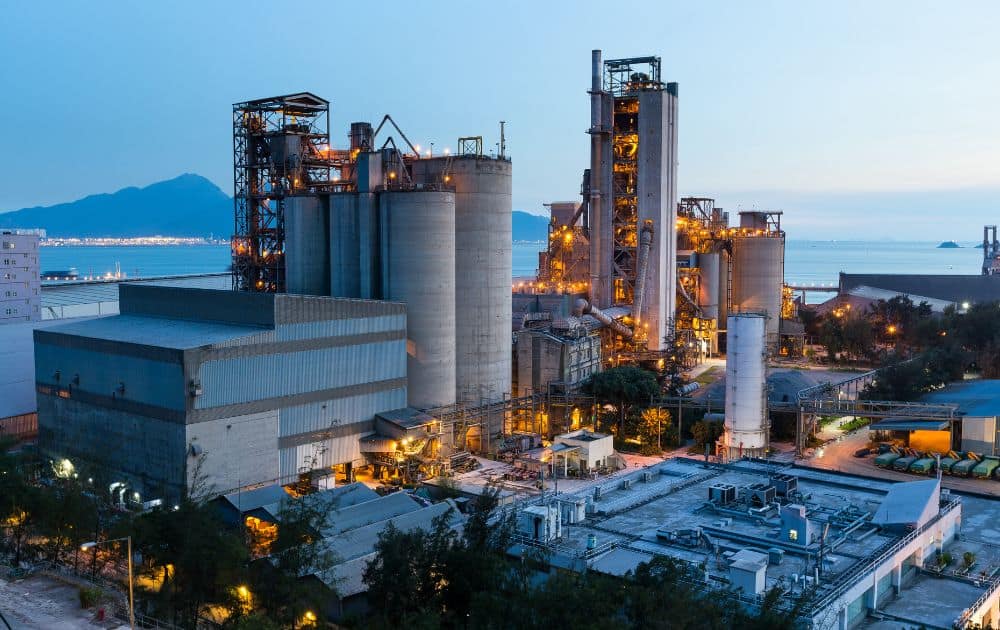In recent years, Industry 4.0 has emerged as a transformative force across various industries, revolutionizing the way businesses operate and driving unprecedented levels of efficiency and productivity. The chemical industry is no exception to this revolution, as it embraces the advancements of Industry 4.0 to enhance its operations and drive innovation.

Understanding Industry 4.0
Industry 4.0 refers to the fourth industrial revolution marked by the integration of digital technologies into manufacturing processes. It encompasses a range of technologies such as the Internet of Things (IoT), artificial intelligence (AI), big data analytics, and more. These technologies enable the interconnection and communication of machines, systems, and humans, leading to the creation of smart factories and efficient production systems.
Impact of Industry 4.0 on Various Industries
The impact of Industry 4.0 is far-reaching, transforming industries across the board. By leveraging advanced technologies, businesses can optimize their operations, improve decision-making processes, and create innovative products and services. Here are some examples of how Industry 4.0 has influenced various industries:
- Manufacturing- Streamlined production processes, predictive maintenance, and improved supply chain management.
- Automotive- Connected vehicles, autonomous driving, and smart manufacturing systems.
- Healthcare- Precision medicine, telehealth, and remote patient monitoring.
- Retail- Personalized shopping experiences, inventory management optimization, and supply chain visibility.
- Energy- Smart grids, renewable energy integration, and energy management systems.
- Agriculture- Precision farming, automated monitoring systems, and data-driven decision making.
The chemical industry, known for its complex manufacturing processes and stringent safety requirements, has also embraced the transformative power of Industry 4.0. By leveraging digital technologies, the chemical industry is enhancing efficiency, safety measures, and sustainability practices throughout its value chain.
Industry 4.0 in the Chemical Industry
The chemical industry encompasses a wide range of sectors, including petrochemicals, pharmaceuticals, specialty chemicals, and more. It is responsible for the production of various chemical substances that are essential for countless products and applications across different industries.
Chemical manufacturing involves complex processes, including synthesis, blending, refining, and packaging. Traditionally, these processes have been labor-intensive and reliant on manual intervention. However, with the advent of Industry 4.0 technologies, the chemical industry has the opportunity to revolutionize its operations and achieve new levels of efficiency, productivity, and sustainability.
Key Technologies Driving Transformation
These technologies are revolutionizing the way chemical manufacturing and operations are conducted, leading to increased efficiency, enhanced safety measures, and improved sustainability practices.
Internet of Things (IoT) Integration
IoT integration is essential for the digital transformation of the chemical industry. Connecting various devices, sensors, and equipment allows IoT to enable real-time data collection and analysis. This connectivity empowers manufacturers to remotely monitor and control chemical processes, equipment performance, and environmental conditions.
Through IoT integration, chemical companies can optimize their production processes, enhance predictive maintenance practices, and improve resource utilization. For example, sensors embedded in equipment can provide valuable insights on performance, allowing for proactive maintenance and minimizing downtime. Additionally, IoT-enabled environmental monitoring systems can ensure compliance with regulatory standards, promoting safety and sustainability.
Artificial Intelligence (AI) Applications
Artificial Intelligence (AI) applications are revolutionizing the chemical industry by enabling advanced data analysis, decision-making, and automation. AI algorithms can process vast amounts of data, identify patterns, and provide valuable insights to optimize operations and improve product quality.
One prominent area where AI is making a significant impact is in process optimization. AI algorithms can analyze complex data sets to identify operational inefficiencies, recommend process improvements, and predict equipment failures. This proactive approach helps chemical manufacturers increase their operational efficiency, reduce energy consumption, and minimize waste.
AI-powered systems significantly enhance product development and quality control. Analyzing data from production processes, laboratory experiments, and customer feedback, AI algorithms identify patterns and correlations. This insight enables manufacturers to develop innovative products, improve formulations, and maintain consistent quality.
Big Data Analytics
The chemical industry generates vast amounts of data from various sources, including production processes, supply chain operations, and customer interactions. Big Data analytics enables the extraction of valuable insights from this data, leading to informed decision-making and improved performance.
Leveraging advanced analytics techniques allows chemical companies to gain a deeper understanding of their operations, identify bottlenecks, and optimize resource allocation. Predictive analytics, for instance, can help anticipate demand fluctuations, enabling manufacturers to optimize inventory levels and production schedules.
Additionally, Big Data analytics can enhance safety and risk management in the chemical industry. Analyzing historical data and real-time sensor information helps companies detect anomalies, identify potential safety hazards, and implement preventive measures. This proactive approach contributes to a safer working environment and reduces the risk of accidents.
By harnessing the power of IoT integration, AI applications, and Big Data analytics, the chemical industry is experiencing a transformative journey towards Industry 4.0. These technologies enable manufacturers to achieve higher levels of efficiency, safety, and sustainability, paving the way for a more innovative and competitive future.
Benefits of Industry 4.0 in Chemical Sector
The implementation of Industry 4.0 technologies in the chemical sector brings forth a multitude of benefits. These advancements not only enhance operational efficiency but also contribute to improved safety measures and sustainability practices.
Increased Efficiency and Productivity
Industry 4.0 technologies revolutionize the chemical sector by optimizing processes and workflows, leading to increased efficiency and productivity. Through the integration of Internet of Things (IoT) devices, chemical manufacturers can monitor and control various aspects of their operations in real-time. This enables proactive decision-making, predictive maintenance, and reduced downtime. Additionally, automation and robotics streamline repetitive tasks, allowing employees to focus on more complex and value-added activities.
A key factor contributing to enhanced efficiency is the utilization of big data analytics. Collecting and analyzing large volumes of data from various sources allows chemical companies to gain valuable insights into their operations. These insights can optimize production schedules, improve supply chain management, and support data-driven decisions. Additionally, integrating artificial intelligence (AI) applications enables advanced process control and optimization, resulting in further efficiency gains.
Enhanced Safety Measures
Safety is a paramount concern in the chemical industry, and Industry 4.0 technologies play a crucial role in enhancing safety measures. With the implementation of IoT devices, real-time monitoring of equipment conditions and environmental factors becomes possible. This enables early detection of anomalies and potential hazards, allowing operators to take immediate action to prevent accidents or mitigate their impact. Additionally, AI-powered predictive maintenance systems can identify equipment failures before they occur, reducing the risk of safety incidents caused by equipment malfunctions.
The use of digital technologies like virtual reality (VR) and augmented reality (AR) also offers training opportunities for chemical plant operators in a safe, controlled environment. Virtual simulations enable operators to familiarize themselves with complex procedures and emergency scenarios, enhancing overall safety awareness and preparedness.
Improved Sustainability Practices
The adoption of Industry 4.0 in the chemical sector brings about significant improvements in sustainability practices. Smart manufacturing processes enabled by IoT devices and data analytics allow for more precise control over resource consumption, energy usage, and waste management. This optimization minimizes resource waste, reduces energy consumption, and decreases the environmental impact of chemical manufacturing operations.
AI algorithms can optimize chemical reactions and formulations, reducing the need for excessive raw material usage. This improves sustainability and leads to cost savings for chemical manufacturers. Additionally, implementing digital systems for supply chain management enhances traceability and transparency, ensuring compliance with environmental regulations and responsible sourcing practices.
The benefits of Industry 4.0 in the chemical sector extend well beyond increased efficiency and productivity. By embracing these technologies, the industry can achieve enhanced safety measures and improved sustainability practices, leading to a more sustainable and resilient future.

Challenges and Considerations
As the chemical industry embraces Industry 4.0 and its transformative technologies, there are several challenges and considerations that need to be addressed for a successful implementation.
Data Security and Privacy Concerns
With the increased integration of digital systems and the collection of vast amounts of data, data security and privacy become paramount concerns. The chemical industry deals with sensitive and proprietary information, including intellectual property, trade secrets, and customer data. Protecting this data from cyber threats and unauthorized access is crucial.
To mitigate data security risks, robust cybersecurity measures must be implemented. This includes encryption, firewalls, intrusion detection systems, and regular security audits. Additionally, organizations should establish strict access controls and train employees on best practices for data protection.
Workforce Upgrading and Training
The adoption of Industry 4.0 technologies in the chemical industry requires a skilled workforce capable of operating and maintaining these advanced systems. However, there may be a skills gap between the existing workforce and the technological demands of Industry 4.0.
To address this challenge, companies must invest in workforce upgrading and training programs. This includes providing employees with the necessary knowledge and skills to leverage digital technologies effectively. Training programs may cover areas such as data analysis, programming, cybersecurity, and the operation of IoT devices. By empowering employees with the required skills, companies can maximize the benefits of Industry 4.0 and foster a culture of innovation and continuous improvement.
Integration with Existing Systems
Integrating Industry 4.0 technologies with the existing systems in the chemical industry can be complex and challenging. Many organizations have legacy systems and infrastructure that may not be compatible with the new technologies.
To ensure a smooth transition, careful planning and coordination are required. Companies should conduct a comprehensive assessment of their current systems and identify areas where integration is feasible. This may involve upgrading existing infrastructure, implementing middleware solutions, or adopting cloud-based platforms.
Addressing challenges such as data security and privacy, workforce upgrading and training, and integration with existing systems is crucial for the chemical industry to successfully implement Industry 4.0 technologies. These considerations are essential for maximizing the benefits of digital transformation, enhancing operational efficiency, and maintaining a competitive edge in a rapidly evolving industry.
Transform Your Chemical Operations with Industry 4.0 and LK Tech
Unlock the full potential of Industry 4.0 in the chemical industry with LK Tech's expert IT solutions in Cincinnati. From optimizing chemical reactions with AI to enhancing safety with VR training, our cutting-edge technologies drive efficiency and innovation.
Contact us today at (513) 769-7100 or email hello@LKTechnologies.com to learn how we can help you stay ahead in this rapidly evolving industry.


